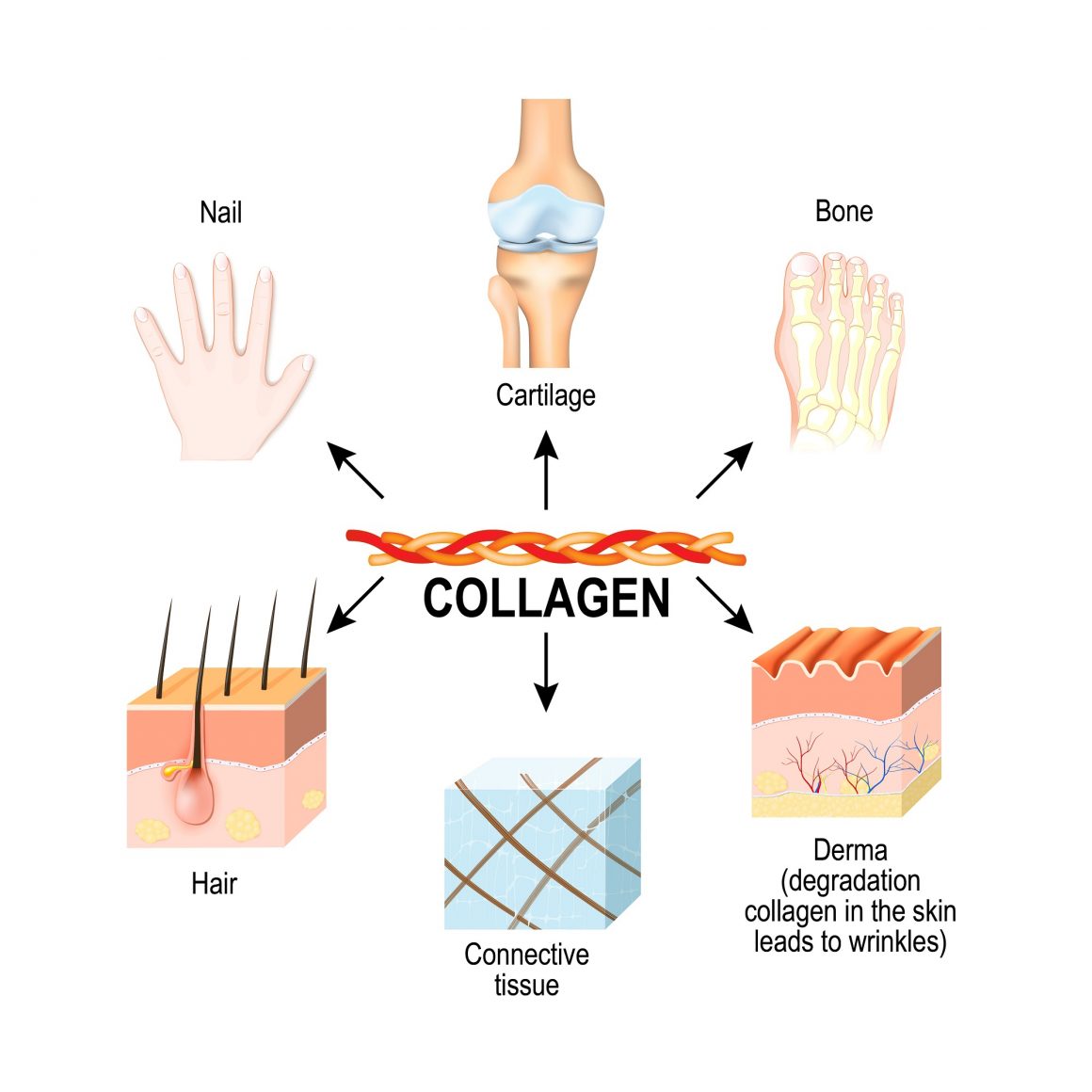The things our bodies consume and produce have taken center stage in health and wellness communities, with few gaining as much recognition or attention as the varying types of protein in our bodies.
One of those proteins is collagen. The most abundant protein in the human body, it makes up the connective tissue in tendons, ligaments, skin, muscle, the cornea of the eyes, blood vessels, gut lining, teeth and nails. It has been shown to play a vital role in the structure of skin and the strength of bones.

You may have seen collagen supplements and wondered whether or not they are safe to take. Collagen has been shown to have significant benefits for relief from joint pain, improved skin health and the prevention of losses to bone and muscle mass.
But for all its positive effects, collagen is also loosely linked to a number of health benefits that it may not actually have any impact on. While supplements are generally safe to take, you may want to consider the actual benefits of taking collagen before you add another item to your medicine cabinet.
Does Collagen Make You Look Younger?
Collagen is known for its ability to maintain your skin’s elasticity. Translated from the Greek word “kolla” as “glue,” it’s vital to the structure of your skin. But does that mean taking collagen as a supplement makes you look younger?

Studies show that collagen supplements can slow the process of skin aging symptoms such as dryness and wrinkles. Others have shown that it aides in the production of other proteins such as elastin and fibrillin, both of which are important in skin health.
But all in all, the effects of collagen supplements are largely unknown. There are theories pertaining to the brain, involving collagen in improvements to mood and reduced anxiety, but further testing is needed.
That lack of research also leads to a lack of understanding when it comes to potential side effects of collagen use. Getting it through your diet naturally is probably a better bet as a healthy diet is known to support graceful aging anyhow.
Collagen Hype vs Reality
As we age, our bodies produce less collagen. When we are young, we produce it in large amounts, but after the age of 25, it decreases significantly. There is no known to solution to this loss of collagen as it is a natural part of the aging process.
You’ll see a lot of products aimed at improving your skin that make promises based on the amount of collagen in the product. While the impacts of collagen supplements are largely unproven, there is some consensus that skincare products do not add collagen to the skin. This comes down to the chemical structure of collagen.
Resembling a braid or rope, amino acids link together, forming long chains, which bundle and form thicker strands. Those strands then twist and coil around each other, making a molecule too large to penetrate skin. Instead, ingredients in collagen skin products remain on top of your skin, where they serve little purpose.
Collagen in skin products and supplements typically comes from some type of animal product, be it chicken bones or cowhide. When It comes to eating, collagen has to be broken down by the digestive system, same as other proteins we eat. In other words, building collagen isn’t likely to happen as a result of eating powdered collagen supplements.
In the end, collagen is created through the amino acids present in protein rich foods. Eating those foods will ensure that you have the fuel necessary to create collagen, but more research is needed to understand the impact diet has on collagen production.
